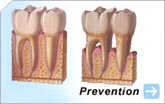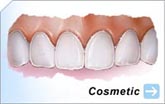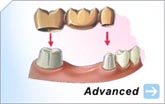 |
 |
 |
|
Your Dentist Might Stop Your Next Heart Attack by Ken Kowalsky |
||
|
As the Webmaster for a site dedicated to helping people save money when they go to the dentist, I find myself having to consistently fight two different and distinct battles; one against the average American's reluctance to pay the high cost of modern dental care and the other is the same American's belief that seeing a dentist regularly just isn't that important. The first battle I have a decent chance of winning but the second battle I've had to throw my hands up in surrender; I mean if someone doesn't care about their teeth enough to have them taken care of by a dentist, what can I possibly say to convince them otherwise? How about this: "Did you know that your next visit to the dentist could prevent a heart attack?" Medical researchers have known for years now that there's a definite link between gum disease (i.e. gingivitis) and person's risk for heart disease. Evidence is mounting, however, that information gleaned from a routine panoramic dental X-rays -- wide-angle frontal images taken to establish the baseline condition of teeth and surrounding bone -- may serve as an accurate early warning system of risk of dying from heart attack or stroke. According to researchers at the University of Buffalo School of Dental Medicine, a study of 818 teeth and jaw X-rays of Pima Indians in Arizona found that those who had a build-up of calcified plaque in the carotid arteries were twice as likely to die from heart attack or stroke. Normally, calcified plaque is present in only about 3 percent of the general population. An earlier study of 2,700 dental patients showed calcium deposits on each side of the carotid arteries can be spotted in X-rays of the teeth and jaw bone. It makes sense that the dental X-rays would see the carotid artery (which carries blood from the heart to the brain and back) so dentists should be aware that it is a screening tool for cardiovascular disease. If they see signs of calcification in dental X-rays, they tell the patient to see his or her doctor as soon as possible. BOTTOM LINE: Most dental insurance plans allow you a yearly dental exam at little or no cost, so schedule a complete check-up -- including X-rays -- with your dentist as soon as possible. If you don't have dental insurance, consider enrolling in a discount dental plan that fits your budget and then go see a dentist as soon as possible.
|